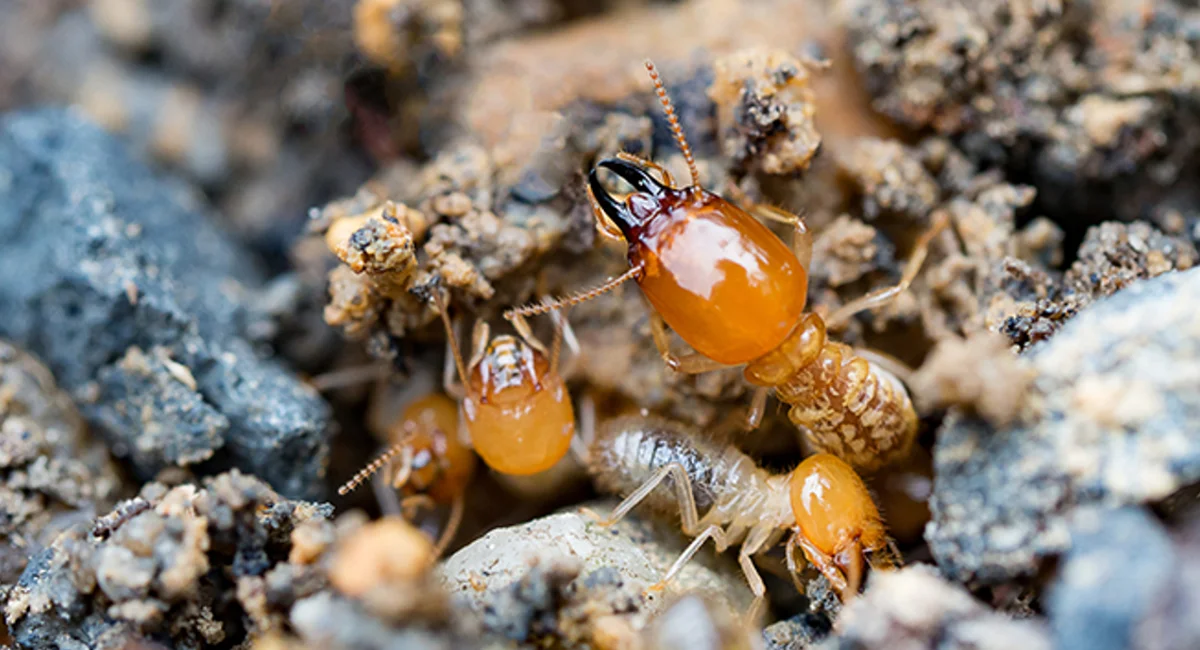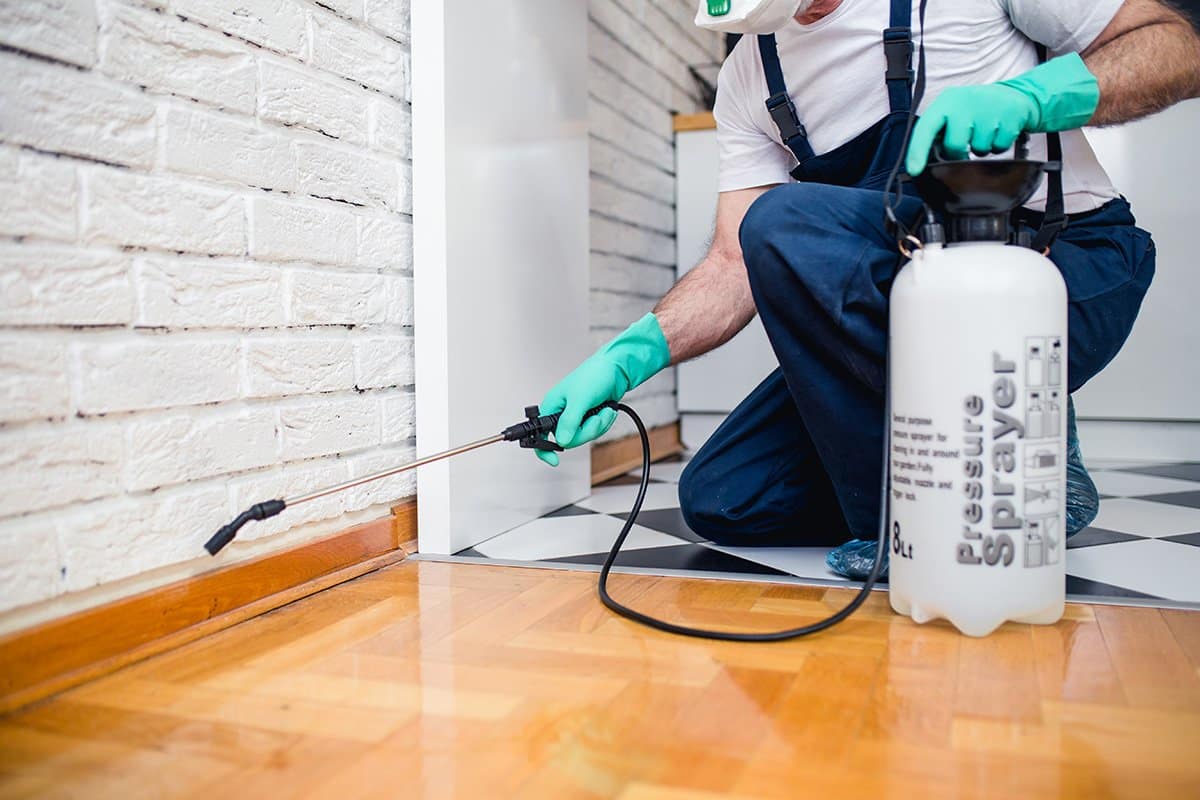Budget Friendly Ant Control Solutions: Maintain Your Space Ant-Free
Budget Friendly Ant Control Solutions: Maintain Your Space Ant-Free
Blog Article
Environmental Influence of Bug Control: Balancing Effectiveness With Sustainability
The ecological impact of parasite control is an important problem that needs a delicate equilibrium between attaining performance in guaranteeing and handling insects sustainability of our ecological communities. As we make every effort to shield our crops, homes, and health from the hazards positioned by pests, the techniques we employ can inadvertently harm the environment. From using unsafe chemicals that leak right into our soil and water to the unplanned repercussions on non-target species, the repercussions of conventional bug control practices are significant. Nevertheless, there are arising techniques that offer wish for an extra lasting method to pest management. These services not just purpose to address the prompt pest issues yet also consider the lasting health and wellness of our earth.
Damaging Chemicals in Bug Control
The use of unsafe chemicals in insect control postures considerable ecological and health risks that necessitate careful consideration and reduction methods. Chemicals, herbicides, and pesticides are generally used to eradicate bugs, yet their widespread application can result in unintended repercussions. These chemicals can infect dirt, water resources, and the air, impacting not just the targeted parasites but additionally beneficial pests, wildlife, and people.

To address these dangers, incorporated insect management (IPM) methods are being promoted as a more sustainable choice. IPM involves a combination of techniques such as organic control, habitat manipulation, and the targeted use pesticides as a last resort (ant control wesley chapel nc). By adopting a holistic technique to pest control, we can reduce the environmental and wellness impacts related to damaging chemicals while efficiently handling pest populaces
Influence On Non-Target Types
Taking into consideration the unplanned effects of parasite control techniques, the effect on non-target types is a critical facet that requires extensive analysis. While bug control procedures aim to target details pests, other organisms in the community might be accidentally affected. Non-target types, consisting of valuable pests, birds, animals, and also plants, can experience direct or indirect damage from pesticide applications or biological control techniques.
Pesticides can have sub-lethal or dangerous effects on non-target species. Insecticides created to fight a particular insect bug might damage pollinators like bees or natural killers such as ladybugs. Furthermore, chemical deposits can gather in the environment, affecting non-target organisms with time. Organic control representatives, if not species-specific, can posture dangers to unplanned targets, interfering with the ecological equilibrium.
To alleviate the influence on non-target varieties, integrated bug monitoring (IPM) strategies that highlight an alternative method to pest control are advised. These techniques prioritize making use of eco-friendly practices, decreasing injury to valuable microorganisms while properly handling pest populaces. Performing comprehensive risk evaluations and monitoring the outcomes of bug control initiatives are necessary action in protecting non-target types and promoting overall ecosystem health and wellness.
Soil and Water Contamination
Unexpected environmental repercussions of bug control techniques extend past influencing non-target varieties, with considerable implications for soil and water contamination - ant control. Pesticides, herbicides, and chemical fertilizers used in parasite control can seep right into the dirt and contaminate groundwater, posturing a risk to both aquatic and earthbound communities.
Water contamination is one more vital concern related to parasite control methods. Drainage from farming areas treated with pesticides can carry these chemicals into close-by water bodies, affecting aquatic organisms and water high quality. Impurities in water sources can have far-reaching repercussions, influencing not just aquatic life however also human health via the consumption of infected water or water microorganisms. To alleviate dirt and water contamination from insect control activities, integrated parasite administration methods that prioritize sustainability and minimize chemical inputs are important.
Air Contamination From Pesticide Use
Exposure to air-borne pesticides throughout farming applications postures a substantial worry for air pollution control steps. They can volatilize into the air and form unstable natural compounds (VOCs) and various other air-borne toxins when pesticides are splashed onto crops - termite control. These chemicals can add to the development of ground-level ozone, a major component of smoke that can have harmful impacts on human wellness, plant performance, and overall air top quality. In addition, pesticide drift, where chemicals are brought by the wind to unplanned locations, can result in the contamination of close-by ecological communities and water bodies.

Methods for Sustainable Pest Control
In the realm of farming techniques, carrying out lasting bug control strategies is critical for preserving ecological balance and safeguarding crop returns. Lasting bug control highlights making use of eco friendly techniques to take care of parasite populaces successfully while minimizing injury to non-target microorganisms and ecosystems. Integrated Bug Monitoring (IPM) is a commonly taken on approach that integrates organic, cultural, physical, and chemical control approaches to attain long-term pest management solutions.
Crop turning and diversification are also efficient strategies to interrupt pest life cycles and produce much less positive conditions for bugs to have a peek at this website prosper. Inevitably, by incorporating these lasting insect control approaches, farmers can achieve a balance between pest administration efficiency and environmental stewardship.
Verdict
In verdict, the environmental effect of parasite control methods should be thoroughly taken into consideration to stabilize effectiveness with sustainability. Hazardous chemicals used in parasite control can lead to dirt and water contamination, air pollution, and injury non-target types - termite control services. It is vital to execute lasting pest control strategies to reduce these adverse impacts on the atmosphere and advertise a much healthier ecosystem for future generations
By adopting an alternative approach to pest control, we can decrease the ecological and health effects connected with dangerous chemicals while properly managing pest populations.

To reduce the air pollution caused by chemical use, it is vital to adopt incorporated insect monitoring methods that prioritize the use of non-chemical pest control methods, such as crop turning, natural killers, and resistant plant ranges. Sustainable parasite control highlights the use of environmentally friendly techniques to manage parasite populations effectively while lessening damage to non-target organisms and ecological communities. Integrated Pest Management (IPM) is a commonly adopted technique that incorporates biological, cultural, physical, and chemical control methods to accomplish long-term pest monitoring solutions.
Report this page